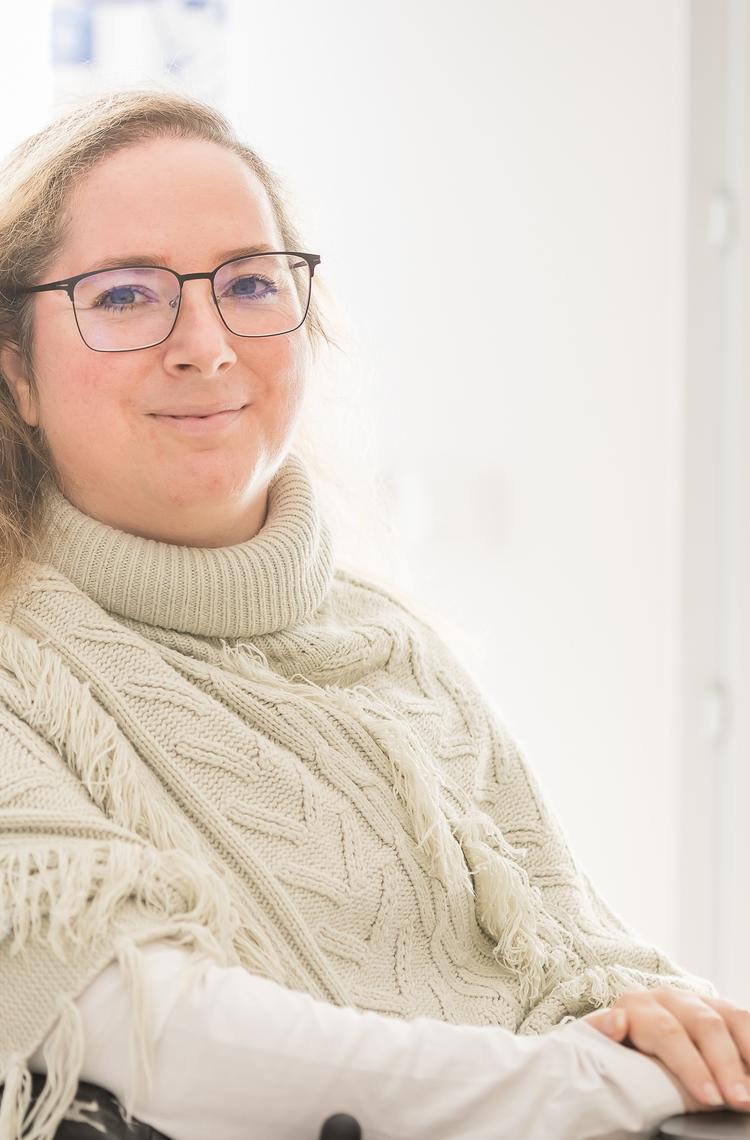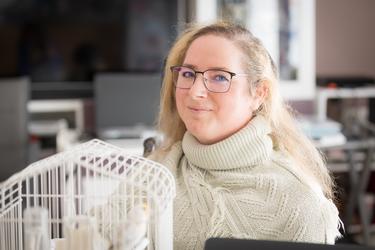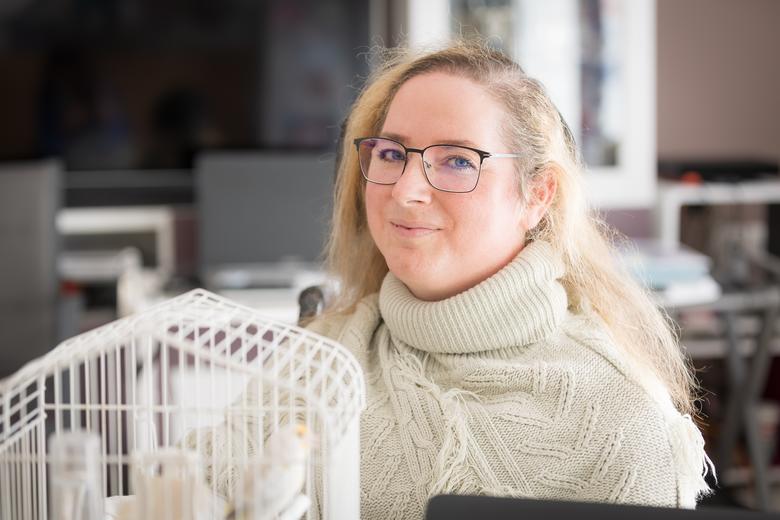Nathalie Rubi is well known in her department. Star wars mugs flank her desk and several funny photo-shopped team pictures line the walls around her office. She is an engineer in the Airbus Helicopters design office and is responsible for finding alternatives to lead soldering and removing harmful substances from equipment and production processes to meet new European regulations.
She also has Werdnig-Hoffmann, a genetic condition that causes muscular atrophy and means she is in a wheelchair. “Travel can be challenging, and it’s not easy all the time,” she says with a laugh. “But my colleagues are there for me every day. From helping me take off my jacket in the morning, using the copy machine or to do some technical manipulations in the laboratory – I know I can count on them.”
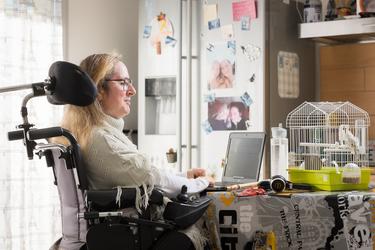
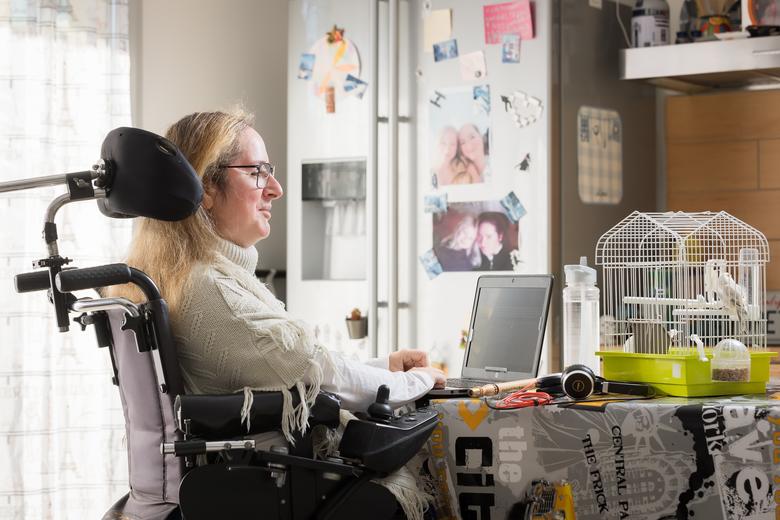
Nathalie Rubi
Since the COVID-19 pandemic Nathalie Rubi has largely worked from home – staying in touch with her team with daily virtual meetings.
“Work hard and you’ll have a chance”
Nathalie was always drawn to computers and engineering. She was the eight year old who wanted to learn how a computer worked and who could be found every Saturday watching Airwolf, the 80’s television show about a renegade helicopter pilot. When she was ten, she went with her parents to an airshow and saw a Dauphin performing an impressive maneuver for the audience. “I knew right then and there that I wanted to work with helicopters and I told my parents. They both said to me, ‘Work hard at school and you’ll have a chance.’ And that’s what I did.” She went on to get a Diplôme d'Études Supérieures Spécialisées (DESS) in GEII (Génie Electrique et Informatique Industrielle) and graduated first in her class from Aix Marseille University at the St Jérôme Faculty of Sciences.
She applied for an apprenticeship at Airbus Helicopters (then Eurocopter) and the following year signed her first job contract with the company. “I love working with all of the different divisions at Airbus. I am working on solving problems for helicopters equipment, but many of my colleagues in the commercial aircraft or defence and space divisions are working on similar challenges, so we share information and if someone has a good idea, we all try to make use of it. It’s a really collaborative environment.”
When asked what advice she would give to girls and women interested in STEM (Science, Technology, Engineering and Mathematics), Nathalie says: “Work hard and demonstrate that there is no difference between women and men in the workplace. Some people want to think there is, and so you must demonstrate that there really isn’t. If you continue to work hard, they will see this.”
Adapting to the pandemic
With the onset of the Covid-19 pandemic though, her work conditions have changed. “Due to my medical condition, my doctors told me to work from home. My job hasn’t changed – we have many virtual meetings and my colleagues call me every day to keep me up to speed on what is going on in the office. I miss being able to have a break and get a coffee with them, but we still talk all the time, they come by my home to see me – and they still send me jokes by email,” she says with a twinkle in her eye. “I’ve got a really good team.”
